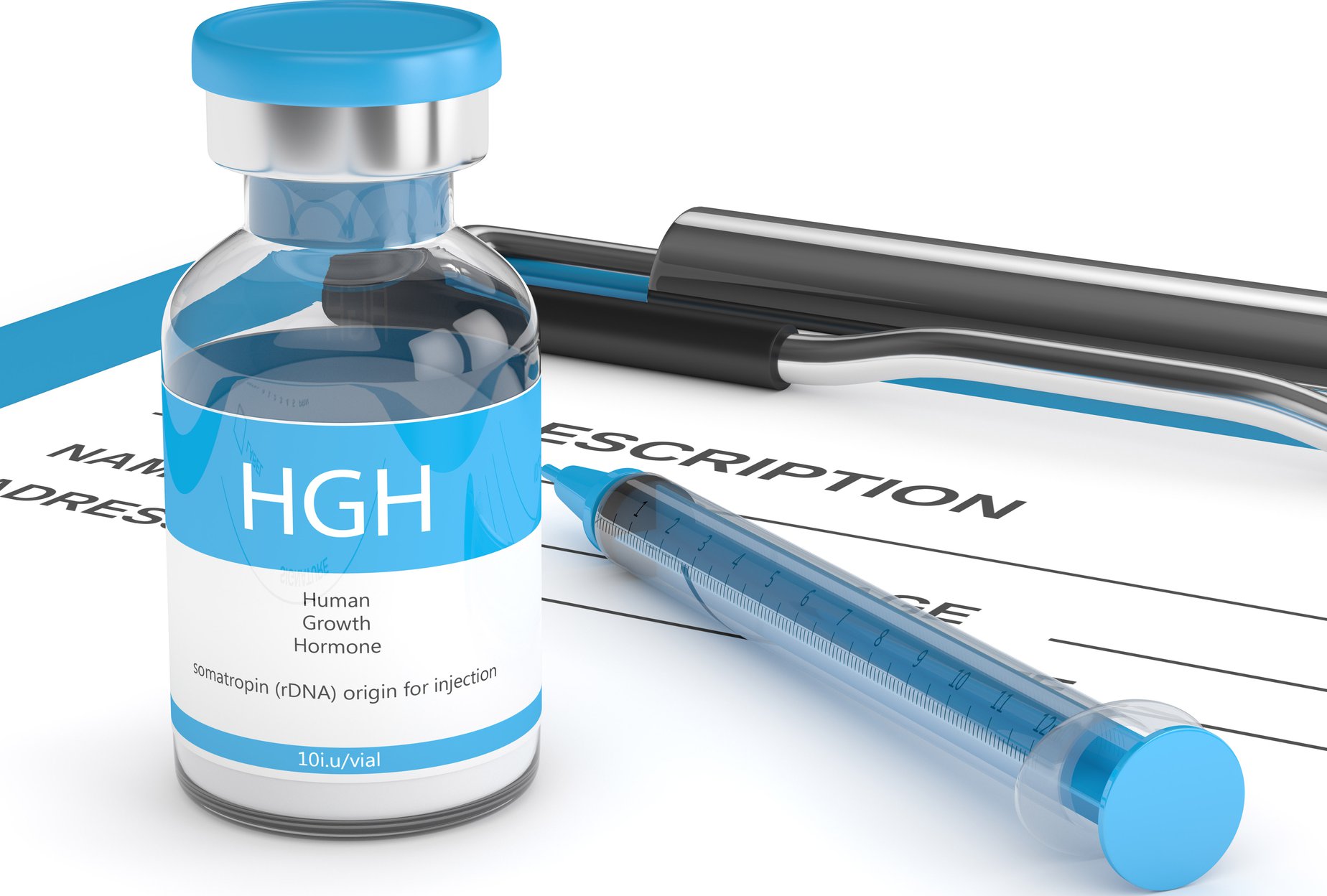Growing with HGH – The Athlete’s Comprehensive Guide to Human Growth Hormone
Introduction – The Buzz Around HGH Whether you’re a seasoned…
Introduction – The Buzz Around HGH
Whether you’re a seasoned bodybuilder, a competitive athlete, or simply someone interested in sports nutrition and performance enhancement, you’ve likely heard about Human Growth Hormone (HGH). Often labelled the “fountain of youth” or “secret weapon” in fitness circles, HGH has sparked curiosity, debate, and controversy in the athletic world.
But what exactly is HGH? Why do so many athletes and fitness enthusiasts seek it out? Is it truly a performance-enhancing miracle, or does it come with serious risks that outweigh the rewards?
Today, we’ll take an in-depth look at HGH—its natural role in the body, its potential benefits, risks, legality, and how it fits into modern bodybuilding and athletic performance. If you’re considering HGH or simply want to understand what all the hype is about, this guide is for you.
What is HGH? Understanding the Body’s Natural Growth Hormone
Before we dive into HGH as a supplement, let’s understand its natural role in the body.
The Science Behind HGH
Human Growth Hormone (HGH) is naturally produced by the anterior pituitary gland, located at the base of the brain. This powerful hormone plays a critical role in:
✅ Growth and development – Especially during childhood and adolescence.
✅ Cellular regeneration – Helping repair and replace damaged cells.
✅ Muscle growth and recovery – Stimulating protein synthesis.
✅ Fat metabolism – Aiding in the breakdown of stored fat for energy.
✅ Bone density and joint health – Supporting skeletal strength.
✅ Immune system function – Assisting in immune response and healing.
HGH levels peak during puberty, gradually declining with age. This natural decline has led many athletes and bodybuilders to seek out HGH supplementation to maintain muscle mass, performance, and recovery as they age.
Why Do Athletes and Bodybuilders Turn to HGH?
For those in the fitness and athletic world, HGH is highly sought after due to its potential to enhance muscle growth, fat loss, recovery, and overall performance.
1. Muscle Growth and Strength
HGH stimulates muscle protein synthesis, leading to:
- Increased lean muscle mass – More muscle, less fat.
- Faster muscle recovery – Reduced downtime between workouts.
- Improved muscle endurance – Supporting long, intense training sessions.
Athletes using HGH often report better muscle fullness, improved vascularity, and aesthetic improvements in their physique.
2. Fat Loss and Body Composition
HGH helps break down stored fat, leading to:
- Lower body fat percentage – A more shredded and defined look.
- Increased metabolism – The body burns more calories at rest.
- Targeted fat reduction – Especially in stubborn areas like the abdomen and lower back.
This makes HGH a popular choice among bodybuilders looking to cut before competitions.
3. Recovery and Injury Prevention
One of HGH’s most valuable benefits is its role in recovery:
- Faster healing of muscle tears and injuries.
- Reduced inflammation and joint pain.
- Stronger connective tissues (tendons, ligaments).
Many athletes recover faster from intense workouts and injuries with HGH, allowing them to train harder and more frequently.
4. Joint and Bone Health
Over time, heavy weightlifting and high-impact sports can wear down joints and bones. HGH helps:
- Increase bone density – Reducing the risk of fractures and osteoporosis.
- Strengthen tendons and ligaments – Less strain on joints.
- Improve flexibility and mobility – Keeping movements smooth and pain-free.
For aging athletes, HGH can help maintain strong bones and reduce joint deterioration.
5. Improved Skin, Hair, and Vitality
Beyond muscle and performance, HGH has been linked to:
- Healthier, more youthful skin – Increased collagen production.
- Stronger, thicker hair – Slowing down hair thinning.
- Higher energy levels – Feeling more active and motivated.
This is why HGH is sometimes referred to as the “anti-aging hormone.”
The Risks of HGH – Why It’s Not a Free Pass to Gains
While HGH has exciting benefits, it also comes with risks and ethical concerns.
1. Legality – Is HGH Banned in Sports?
HGH is banned by most major sports organizations, including:
- The World Anti-Doping Agency (WADA)
- The International Olympic Committee (IOC)
- The National Collegiate Athletic Association (NCAA)
Using HGH without a prescription is illegal in many countries, and getting caught can result in suspensions or bans from competitions.
2. Potential Side Effects
While moderate doses may be tolerated, high or prolonged HGH use can lead to:
❌ Water retention and bloating
❌ Joint and muscle pain
❌ Increased blood sugar levels (risk of diabetes)
❌ Swelling of internal organs
❌ Acromegaly (abnormal bone growth in the hands, feet, and face)
Excessive HGH can alter normal hormone function and cause unwanted growth in body parts beyond muscle.
3. The Risk of Counterfeit HGH
The HGH black market is full of dangerous counterfeits:
- Fake HGH often contains harmful chemicals.
- Doses may be inconsistent or mixed with unsafe substances.
- Some “HGH” is just peptides or insulin mimicking real HGH.
If you’re considering HGH, always seek professional guidance.
Dosage – A Detailed Look
When considering HGH, it’s imperative to understand that dosage can vary widely based on the purpose of use, the individual’s physique, and overall goals. Always consult a healthcare professional to get personalized advice, but for the sake of information, here’s a general breakdown:
- Therapeutic Use: If HGH is being used for medical or therapeutic reasons, dosages typically range between 1-3 IU (International Units) per day.
- Performance Enhancement: For athletes or bodybuilders looking to capitalize on the muscle-building and fat-loss properties of HGH, the range usually falls between 2-5 IU per day. However, there are reports of some users taking doses up to 10 IU per day, especially during intense training phases.
- Administration Details: Remember, HGH is not a pill or a drink. It’s typically injected subcutaneously, often into the abdominal fat, for optimal absorption.
It’s worth noting that while these are typical doses found in the community, everyone’s body responds differently. Regular health check-ups and monitoring for any side effects are crucial.
Final Thoughts – Should You Consider HGH?
HGH is one of the most powerful hormones in the fitness world, but it isn’t a magic bullet.
Before considering HGH, ask yourself:
✅ Are you aware of the risks and side effects?
✅ Do you have a legitimate medical need for HGH?
✅ Is it worth the legal and financial risks?
✅ Have you exhausted natural methods (proper training, nutrition, and recovery)?
For most athletes, natural strategies will always be safer and more sustainable. If HGH is on your radar, make sure you’re fully informed, cautious, and prioritizing long-term health.







